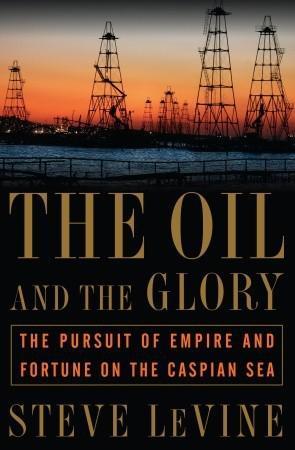
The Oil and the Glory: The Pursuit of Empire and Fortune on the Caspian Sea
by
Steve Levine
Published 23 Oct 2007
CHRONOLOGY * * * Pre-Soviet period 1823 Zeynalabdin Tagiyev born 1872 Sale of Baku land legalized; oil rush begins 1873 Robert Nobel arrives in Baku 1878 Ludvig Nobel unveils Zoroaster, world’s first oil tanker 1883 Edmond and Alphonse de Rothschild arrive in Batumi 1901 Baku supplies 51 percent of world’s oil 1905 Worker uprising destroys Baku oil fields 1906 Baku-Batumi oil pipeline completed 1914 World War I breaks out 1917 Bolshevik Revolution 1920 Bolsheviks overthrow Azerbaijan government (April 28) Early Soviet period 1920 Standard Oil concludes deal with Nobels (July 30) 1921 Lenin’s “New Economic Policy” invites foreign businesses 1924 Britain recognizes Soviet Union Lenin dies 1933 United States recognizes the Soviet Union Later Soviet period 1968 James Giffen hired by Soviet trader Ara Oztemel 1969 Détente begins; Nixon liberalizes trade with Soviets 1972 Oztemel fires Giffen 1973 John Deuss launches first oil trading venture U.S.-USSR Trade and Economic Council formed (June 22) Arab nations start oil embargo (October 17) Saudi Arabia cuts off oil shipments to United States (October 20) 1979 Iranian Revolution; new Arab oil embargo begins John Deuss ships oil to South Africa against U.N. embargo Soviets invade Afghanistan (December 27) 1984 Giffen forms Mercator; becomes president of U.S.-USSR Trade Council 1985 Blowout at Tengiz oil field (June 24) 1987 Gorbachev legalizes joint ventures (January 13) Giffen forms American Trade Consortium (May) Heydar Aliyev sacked by Gorbachev from Politburo (May) Chevron in Moscow to look at Soviet oil properties (September) 1989 Steve Remp arrives in Baku (May) Nursultan Nazarbayev becomes Communist Party chief of Kazakhstan (June 22) 1990 Gorbachev signs START II with Bush, and preliminary agreement for Tengiz with Chevron (June 2) Baku’s new oil rush begins with first oil show (October) 1991 Kazakhstan takes over Tengiz talks with Chevron (July 23) Attempted anti-Gorbachev putsch (August 19) Omanis loan Kazakhstan $100 million for grain (November) Ex-Soviet republics form Commonwealth of Independent States (December 21) Gorbachev resigns (December 26) Soviet Union dissolves (December 31) Giffen’s American Trade Consortium ceases to function (December 31) Post-Soviet period 1992 Chevron fires Giffen as adviser (January) Ex-Soviet foreign minister Eduard Shevardnadze returns to Georgia homeland (March) Nazarbayev and Chevron chairman Ken Derr sign preliminary Tengiz deal at Blair House (May 18) Kazakhs, Omanis form consortium to build export pipeline for Tengiz (June 11) Margaret Thatcher helps seal BP’s offshore Baku deal (September 7) Giffen helps Kazakhstan get uranium pact with United States (October) 1993 Preliminary agreement to develop Kazakhstan’s Kashagan oil field (January 9) Clinton, Yeltsin establish Gore-Chernomyrdin commission (April 3–4) Final Tengiz agreement signed (April 6) Heydar Aliyev announces assumption of power in Azerbaijan (June 18) Russia severs Caspian states’ natural gas exports (November) Russia’s Yuri Shafranik promised 10 percent of Baku offshore deal (November 19–20) 1994 Yeltsin declares Russia ex-Soviet regions’ “guarantor of stability” (February 21) Russia asserts veto rights over Caspian development (April 28) “Contract of the Century” signed for Baku offshore wells (September 20) Giffen put in charge of negotiating Kazakhstan’s major oil deals (December) 1995 Kazakhstan lets Gazprom into Karachaganak natural gas field (February 12) Car wreck kills Qais al-Zawawi, Deuss’s Omani patron (September 12) Clinton phones Heydar Aliyev to urge dual pipeline routes (October 2) Dual Baku pipelines announced (October 9) Unocal signs for trans-Afghan pipeline (October 21) 1996 Deuss forced out of Tengiz pipeline consortium (January) Tengiz pipeline consortium restructuring agreed in Moscow (March 11) Clinton signs Iran-Libya Sanctions Act (August 5) Taliban captures Kabul (September 27) 1997 Collapse of Thai baht triggers financial turmoil (July 2) U.S.
…
Courtesy of Chevron Ken Derr, Keller’s successor as Chevron chairman. Derr finally signed the Tengiz deal and outlasted John Deuss in a contest of wills over the construction of an export pipeline. Courtesy of Chevron Dick Matzke, Silcox’s successor as head of Chevron Overseas, was once shunned by the Kazakhs and couldn’t get along with Jim Giffen, but he was an indefatigable and artful negotiator. Courtesy of Chevron James Giffen in 1989, near the peak of his influence in Moscow, when he was a regular in Mikhail Gorbachev’s Kremlin. Photograph by Andy Freeberg John Deuss, the Dutch oil trader worth hundreds of millions of dollars who finally closed the Tengiz deal for Chevron.
…
Hungry for new opportunities, the boldest of these western entrepreneurs moved on to the former Soviet republics surrounding the Caspian, now independent nations. There they gained the confidence of the region’s autocratic rulers, who asked them to protect the interests of the newly independent republics. John Deuss, a Dutch oil trader with keen and ruthless instincts, was one such operator. He hobnobbed with Arab sheikhs and flew in a Gulfstream jet, often with beauteous models at his side, to visit his offices around the world. Frequently, he dispatched his jet to pick up employees or friends for a weekend at his Bermuda estate.
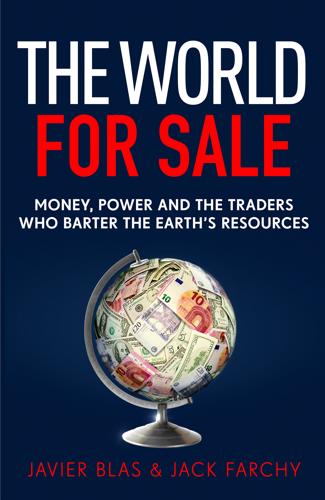
The World for Sale: Money, Power and the Traders Who Barter the Earth’s Resources
by
Javier Blas
and
Jack Farchy
Published 25 Feb 2021
Deuss was the opposite of the conservative ideal of the Philipp Brothers school of trading. Unafraid to play politics, he mixed freely with Iranian ayatollahs, Arab sheikhs and Soviet bureaucrats, even becoming an adviser to the Sultan of Oman. He gambled on the price of oil with abandon, making and losing hundreds of millions of dollars at a time. ‘John Deuss is a mythical character,’ says Bill Emmitt, a former executive at oil brokerage PVM, who dealt with him on numerous occasions. ‘He always tried to play behind the scenes.’ 51 In contrast to Rich, Deuss somehow managed to avoid the limelight. He rarely spoke in public; he gave only a handful of interviews; and he managed to keep his profits and losses hidden from prying eyes.
…
Unlike Marc Rich, who disavowed any interest in politics, Deuss positively relished using his oil-market power for political ends. For him, money was a proxy for political influence. When asked why money was so important to him, he replied: ‘Don’t you understand that it’s a question of power, and money means power. It’s as simple as that.’ 61 John Deuss personified a shift in the oil market’s centre of gravity, away from the Seven Sisters and towards the traders. By the late 1970s, the likes of Rich and Deuss had been accumulating money and power for several years. But a new crisis in the Middle East was about to redraw the oil market, bringing them riches on a new scale – and catapulting them to a position of geopolitical significance that would catch the attention of governments around the world.
…
If the US government banned oil trading with Iran, that didn’t stop a Swiss company, such as the Zug branch of Marc Rich + Co, from doing it. ‘I feel comfortable,’ he replied, when asked if he felt any guilt about buying Iranian oil during the hostage crisis. 64 And so, it was nothing unusual for Rich when, in spring 1980, John Deuss stepped into his Manhattan office with an offer to buy some Iranian oil. 65 Deuss and Rich were the two oil-trading titans of the era – they handled the biggest volumes, took the biggest risks, and paid no heed to political scruples. It didn’t matter that at that very moment fifty-two Americans were being held hostage in Tehran; there was a deal to be done.
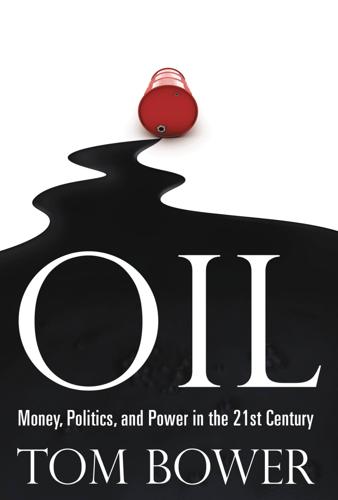
Oil: Money, Politics, and Power in the 21st Century
by
Tom Bower
Published 1 Jan 2009
(AP/Press Association Images) Attacks by armed gangs in Nigeria’s Delta region hampered production in the area. (Sipa Press/Rex Features) Oil pollution in Nigeria. (AP/Press Association Images) Ken Saro-Wiwa. (© Tim Lambon/Greenpeace) Marc Rich. (Photograph by Jim Berry, Camera Press London) John Deuss. (Photo by David Skinner) President Heydar Aliyev of Azerbaijan with the Queen at Buckingham Palace. (Press Association Images) President Boris Yeltsin with leading Russian bankers. (AP/Press Association Images) Mikhail Khodorkovsky and Mikhail Fridman. (Tass/Press Association Images) Fridman and Vladimir Potanin.
…
Big Oil was accused of profiteering from rationing supplies, and Rich was in the firing line after the seizure on November 4, 1979, of 52 American diplomats in Tehran. His profiteering from America’s humiliation sparked a federal investigation into suspected tax evasion. Rich’s success also aroused the interest of two independent oil traders: Oscar Wyatt, an American famous for running over anyone who got in his way, and John Deuss, alias “the Alligator,” a scarred buccaneer based in Bermuda, born 200 years too late. The son of a Ford plant manager in Amsterdam, Deuss’s early career as a car dealer had ended in bankruptcy. His next occupation was bartering oil between opportunistic producers and South Africa and Israel, both of which were excluded from normal trade by embargoes.
…
The CFTC, a lackadaisical regulator caring primarily for farmers and agricultural contracts, had never experienced the pressure of oil lobbyists. Within days the companies declared victory. Fifteen-day Brent was declared to be a “forward contract” and beyond regulation. The oil companies could administer their own “justice,” especially when they fell victim to a squeeze of Brent oil orchestrated by John Deuss, the sole owner of Transworld. Transworld was based in Bermuda, with trading offices in London and Houston, and Deuss’s micromanagement stimulated the sentiment among his traders that the only compensation for suffering his obnoxious manner was the unique lessons in oil trading he could provide.
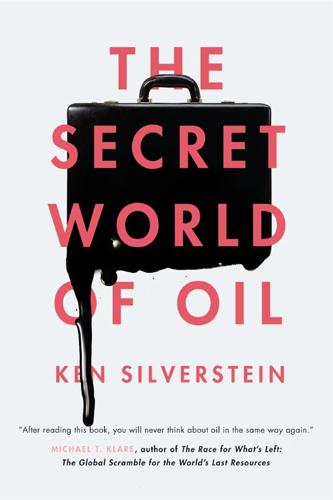
The Secret World of Oil
by
Ken Silverstein
Published 30 Apr 2014
Key brokers who emerged in the post-1973 OPEC world included: Marc Rich, who founded the giant commodities firm Glencore (see Chapter 3); Hany Salaam, a Lebanese middleman who made numerous deals for Occidental Petroleum Corporation during the days of Armand Hammer, its former chairman; and Oscar Wyatt, a Houston oilman and corporate raider who was sentenced to a year in prison in 2007 in connection with the UN oil-for-food scandal. One of the more colorful of that era’s fixers was John Deuss, who once owned his own tanker fleet, and who during the 1980s smuggled vast quantities of oil to South Africa’s apartheid regime, then under an international trade embargo imposed by the United Nations. In 1979, after the overthrow of the shah, Iran stopped exporting oil to South Africa’s apartheid regime, due to the embargo.
…
In 1979, after the overthrow of the shah, Iran stopped exporting oil to South Africa’s apartheid regime, due to the embargo. Using fake documents and transferring oil from one tanker to another on the high seas, Deuss smuggled more than one hundred million barrels of crude to South Africa over the next four years. “Guests invited to one or another of his residences found John Deuss to be a supremely hospitable host,” writes Steve LeVine, author of The Oil and the Glory: The Pursuit of Empire and Fortune on the Caspian Sea. He often flew them in, aboard a pair of luxury Gulfstream jets, or ferried them around the Caribbean … on Fluertje, a 150-foot yacht large enough for formal dinners on deck.
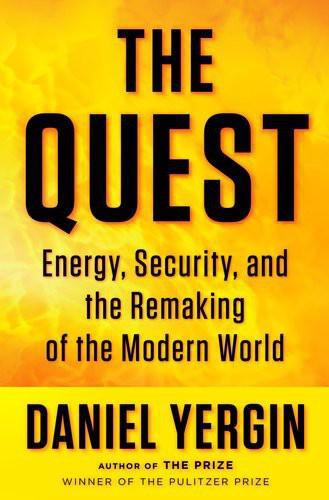
The Quest: Energy, Security, and the Remaking of the Modern World
by
Daniel Yergin
Published 14 May 2011
Without the oil pipeline, this particular “newly independent” state was certainly going to be less independent. Having a freebooter—oil trader John Deuss—ending up with control of something so strategic and significant for global energy security as the major export route for Kazakh’s future oil was definitely seen as a problem. Finance would be key to whether Deuss’s plan would go ahead. It became clear that Western loans were never going to be available to finance John Deuss to become the pipeline arbiter of Kazakh oil. With that, Deuss faded out of the picture. But Moscow still needed to agree to a pipeline running through Russian territory.
…
It would also be caught up in the complex post–Cold War geopolitical struggle to redefine the former “Soviet space” and the relationships among Moscow, the Near Abroad, and the rest of the world. The players here would include Kazakhstan, Russia, the United States, and, later, China; Chevron and other oil companies; as well as the Persian Gulf oilproducing nation of Oman. Improbably, at the center of it all, at least for a time, was a flamboyant Dutch oil trader, John Deuss, whose penchant for high living included stables with champion jumping horses, two Gulfstream jets, yachts, ski resorts, and a variety of homes. His involvement in Kazakhstan was bankrolled by Oman, with which he had developed a very close relationship. Chevron, so focused on the Tengiz field itself and also the risks that went with it, had left it to Kazakhstan to finance and organize the pipeline.
…
Then, what seemed to be the entire Azerbaijani and Georgian rail systems were mustered to move the oil on to the Black Sea. Chevron was also leasing six thousand Russian rail tank cars to move additional oil to the Black Sea port of Odessa, which, to make things more complicated, was now part of Ukraine. Once again, it seemed back to the nineteenth century in terms of logistics. And that just would not do. John Deuss had a particular patron in Oman, the deputy prime minister. But then this minister was mysteriously killed in an auto collision in the middle of the desert. Thereafter Oman’s support for Deuss dwindled away at remarkable speed. At the same time, Kazakhstan canceled Deuss’s exclusive rights to negotiate for financing for the pipeline.